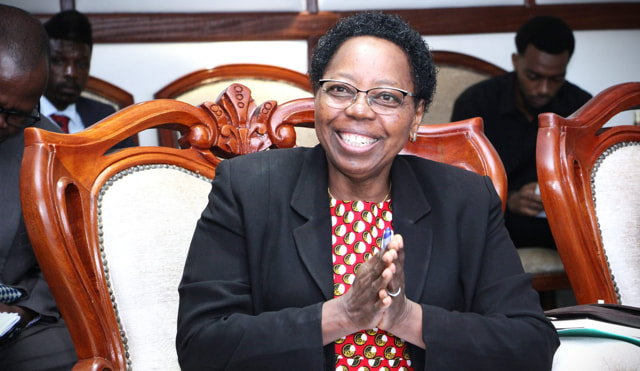STATEMENT ON COMMEMORATION OF 16 DAYS OF ACTIVISM AGAINST GENDER-BASED VIOLENCE
The National Gender and Equality Commission (NGEC) joins Kenya and the rest of the world in marking the 16 days of activism against Gender-Based Violence. This is a period during which the world unites through activism and advocacy efforts to end Gender Based Violence (GBV). The period kicks off on 25 November, the International Day for the Elimination of Violence against Women, and runs until 10 December, the Human Rights Day.
The theme for this year’s commemoration is UNITE! Invest to Prevent Violence against Women and Girls. The theme stresses the need for investments, collaborative action, and sustained commitment to create a world where every individual can live free from violence and discrimination.
GBV has been recognized as a grave violation of human rights and has prompted concerted efforts and commitments both internationally and locally to address and eliminate it. At the International level, a key component of Goal 5 of the Sustainable Development Goals is to eliminate all forms of violence against women and girls. Frameworks like the Convention on the Elimination of All Forms of Discrimination Against Women (CEDAW) and agreements such as the Beijing Declaration and the Platform for Action, Equality Generation Forum(GEF), and the Maputo Protocol underscore commitments to combat GBV globally and regionally.
At the local level, various policy, legal, and programmatic efforts have been put in place to eliminate gender-based violence. However, despite these efforts, Gender Based Violence gender-based violence continues to persist in various forms, including domestic violence, sexual harassment, human trafficking, and harmful cultural practices. According to the 2022 Kenya Demographic Health Survey (KDHS), 32% of women from age 15-49 experienced physical violence while 37% of married women or those living with their partners were reported to have experienced physical violence. Intimate partner violence was also reported among women who had never been married. The survey showed that 13% of women had been subjected to violence. Despite a reduction in the incidence of Female Genital Mutilation (FGM) in Kenya, statistics show that 15% of women and girls have still undergone circumcision exposing them to a heightened risk of severe health issues. These statistics underscore the need for a comprehensive and strengthened effort to eliminate GBV in Kenya. It is imperative to address not only the legal aspects but also the root causes and cultural factors that contribute to the perpetuation of violence.
Attention must be directed towards supporting organizations working with local communities. These organizations play a crucial role in preventing violence by addressing socio-cultural norms. The active involvement of men and boys in the prevention and response to Gender-Based Violence (GBV) is an integral aspect of fostering lasting societal change. There is a need to recognize their role as allies, advocates, and agents of positive transformation in breaking the cycle of violence and creating a more inclusive and equitable society.
The NGEC applauds the government's efforts in ensuring accessible healthcare for all, particularly through the recent engagement of Community Health Practitioners. We urge the government to invest in disseminating information on the prevention and response to gender-based violence through these practitioners, who live among survivors and those at risk. These health providers can also be trained to provide care for survivors through first-hand medical treatment and referrals to services as may be needed.
Further, we laud the judiciary for its efforts in fast-tracking GBV through the establishment of special courts and streamlining procedures. Successful prosecution ensures accountability for perpetrators and discourages future occurrences of violence. We anticipate the replication of such courts across all Counties.
We call upon County governments to invest in setting up safe shelters and spaces for women and girls survivors of violence and set aside budgets to ensure the smooth running of operations within those shelters, and also ensure a seamless re-integration of survivors to their communities without exposing them to threats of further attacks. Such efforts will go a long way in ensuring dignity for survivors of violence.
As we commemorate this period, I call upon of all us to renew our commitment to creating a society where every individual can live free from fear and violence. Let us UNITE and INVEST toward eliminating Gender Based Violence in Kenya and create a safer, more equal, and prosperous world. Let us use this period of activism to amplify the voices of survivors, challenge stereotypes, and inspire change within our communities.
As the NGEC, we reaffirm towards promoting gender equality and freedom from discrimination for all. Together, we can create a world where the rights of every woman and girl are protected, and they can live free from the fear of violence and discrimination.
SIGNED
Dr. Joyce Mutinda (PhD), EBS
CHAIRPERSON- NGEC
Dr. Joyce Mutinda-Chairperson


Comments